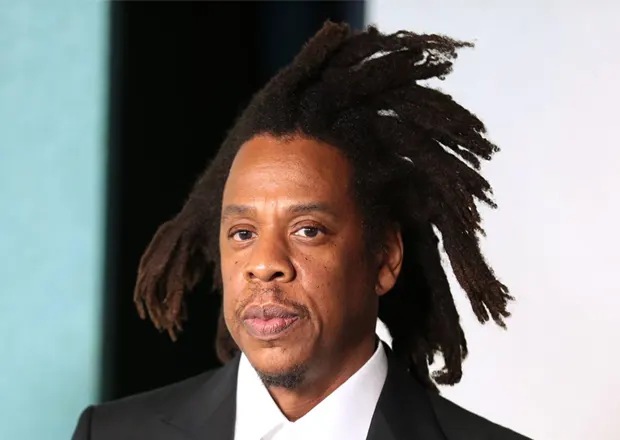This legal saga centers around now-dismissed sexual assault allegations leveled against rapper Jay-Z, whose legal name is Shawn Carter, and his subsequent lawsuit against the accuser, identified as Jane Doe, and her attorneys, Tony Buzbee and David Fortney. The initial lawsuit, filed by Jane Doe, alleged that Carter had sexually assaulted her in 2000 when she was 13 years old at an MTV Video Music Awards afterparty. This lawsuit was voluntarily dismissed on February 14, 2025. However, the dismissal has not quelled the legal battle, but rather ignited a new one.
Carter’s lawsuit, filed on March 3, 2025, accuses Jane Doe and her legal team of malicious prosecution, abuse of process, and civil conspiracy. He alleges that the initial accusations were entirely fabricated and driven by a desire to extort money from him. The lawsuit details a supposed “private” demand letter, interpreted by Carter’s team as a thinly veiled threat aimed at forcing a financial settlement. Carter seeks damages, asserting that the false allegations have inflicted significant harm on his reputation, career, and family life. He estimates the financial impact of the accusations at $20 million in lost contracts. Further strengthening his claim, Carter asserts that Jane Doe confided in his representative, admitting that the alleged assault never occurred. He also accuses Buzbee of coercing Jane Doe to perpetuate the false narrative despite her recantation. This assertion paints a picture of a legal team manipulating a vulnerable individual for financial gain, according to Carter’s perspective.
Buzbee, in response, vehemently denies the allegations in Carter’s lawsuit. He maintains that the lawsuit is frivolous and designed to bully and intimidate Jane Doe. He further challenges the veracity of the quotes attributed to Jane Doe in Carter’s filing, suggesting that the conversation described either never took place or occurred with someone impersonating the accuser. This raises questions about the evidence supporting Carter’s claims and sets the stage for a potentially protracted legal battle to determine the truth. Buzbee’s stance reinforces the notion that Jane Doe stands by her claims, directly contradicting Carter’s narrative. This conflict of accounts forms the core of the ongoing legal dispute.
This current legal entanglement is not the first between Carter and Buzbee. In December 2024, Carter initiated a separate lawsuit against Buzbee in Los Angeles, alleging civil extortion, defamation, and intentional infliction of emotional distress. This earlier lawsuit is seemingly connected to the same underlying allegations of sexual assault. In February 2025, Judge Mark H. Epstein ruled that the defamation claim in the Los Angeles case could proceed to trial, while indicating a potential dismissal of the extortion claim. This earlier lawsuit reveals a pre-existing adversarial relationship between Carter and Buzbee, potentially adding another layer of complexity to the current proceedings. The timing of Buzbee’s initial lawsuit, filed just prior to the premiere of Carter’s daughter Blue Ivy’s film, “Mufasa: The Lion King,” is cited by Carter as evidence of malicious intent, further escalating the conflict.
The crux of the controversy lies in the starkly opposing narratives presented by Carter and Jane Doe, with Buzbee acting as a central figure in both. Carter portrays himself as the victim of a calculated extortion scheme orchestrated by Buzbee and fueled by fabricated allegations. He argues that Jane Doe, possibly under Buzbee’s influence, has falsely accused him of a heinous crime, causing significant damage to his reputation and career. Conversely, Buzbee and Jane Doe (as conveyed through Buzbee) maintain that the allegations are true and that Carter’s lawsuit is an attempt to silence and intimidate his accuser. This clash of narratives presents a significant challenge to the legal system, requiring thorough investigation and scrutiny to determine the truth. The ongoing legal battles are likely to delve into the details of the alleged encounter, the motivations of all parties involved, and the credibility of the evidence presented by both sides.
This complex legal battle raises several critical questions. Did the alleged assault occur? Was Jane Doe coerced or manipulated into making false accusations? Was Buzbee’s involvement driven by a genuine concern for his client’s well-being or motivated by financial gain? The answers to these questions will ultimately determine the outcome of the lawsuits and have significant implications for all parties involved. The high-profile nature of the case, involving a renowned musician and a high-powered attorney, adds another layer of scrutiny to the proceedings. The public perception of both Carter and Buzbee will undoubtedly be influenced by the outcome of these legal battles. The case highlights the delicate balance between protecting individuals from false accusations and ensuring that legitimate claims of sexual assault are heard and addressed.
This case represents a collision of powerful figures and sensitive accusations, underscoring the complexities of navigating claims of sexual assault within the legal system. The conflicting narratives and pre-existing animosity between the parties involved make this a challenging case to unravel. As the legal proceedings unfold, the focus will remain on discerning the truth amidst the conflicting accounts and determining the accountability of all parties involved. The substantial financial and reputational stakes involved underscore the significance of this legal battle, which is likely to continue captivating public attention as it unfolds.














